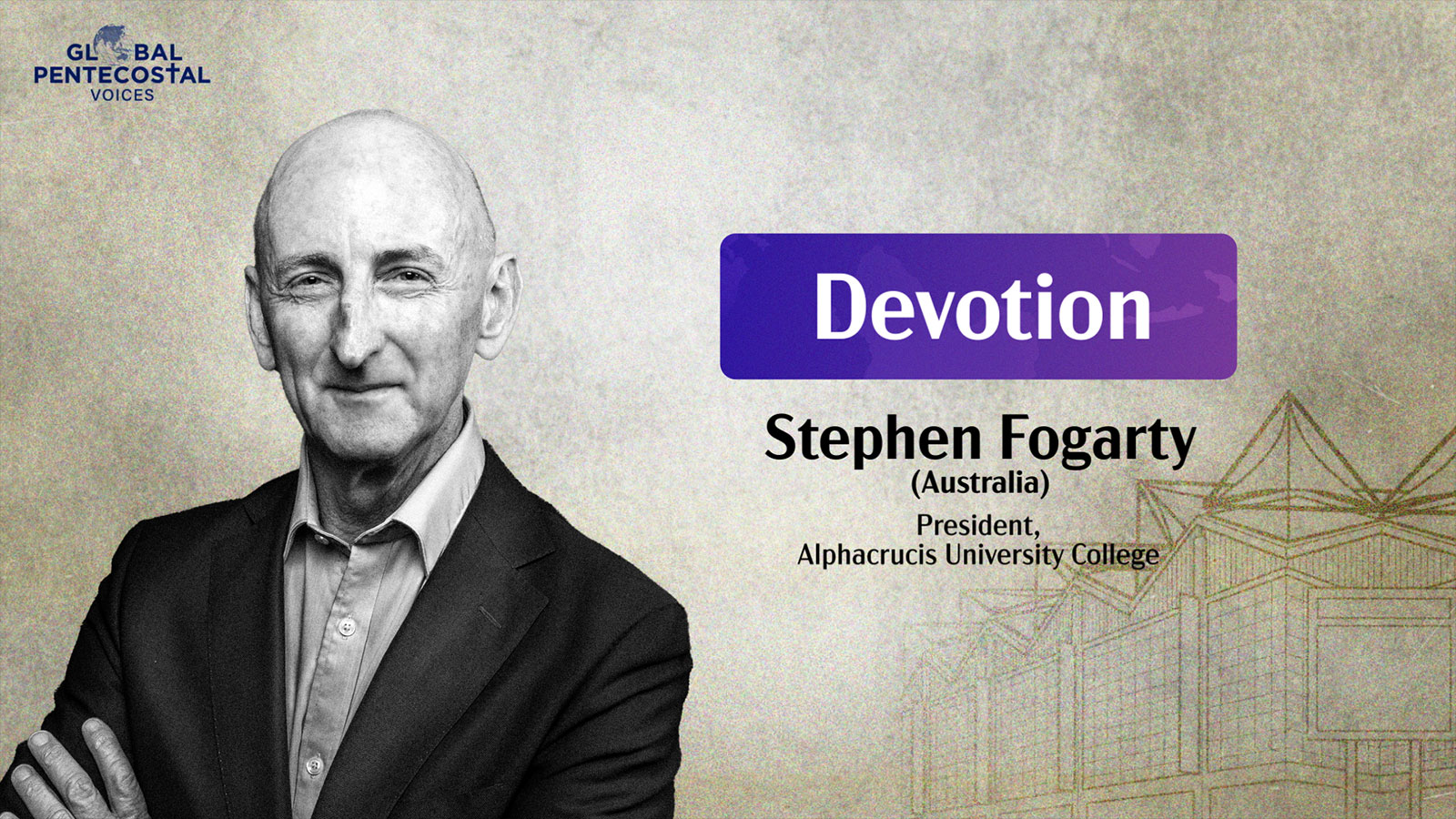Stephen Fogarty holds a PhD in organisational leadership from Regent University, where his research focused on transformational and servant leadership, and the connection between leadership behaviour and volunteer motivation. He also earned his MA in theology from Australian College of Theology.
Dr Stephen serves as president of Alphacrucis University College, the national training college of the Australian Christian Churches, since 1999. He provides leadership to the academic and administrative staff and students, while representing the college to its various constituencies. Before his presidency at Alphacrucis, he pioneered three churches and has extensive experience in pastoral ministry.
Dr Stephen’s notable publication, Light a Fire: How to Effectively Motivate Volunteers in Your Church (2016), has been translated into Spanish and Finnish. He also chairs the Asia Pacific Theological Association and Alphacrucis College in New Zealand. He also serves on the executive committees of the World Alliance for Pentecostal Theological Education.

This presentation raises the question of the continuity of the Church with the life of Jesus, that is, what the Scriptures call the scandal of Christ. The use of the term “scandal” is derived from the Greek skandalon as used in the New Testament. In its ancient usage, the root of the term identifies the “means whereby one closes something” and refers to the mechanism sealing a trap to which the bait is mounted. The trigger is the stick or the stone preventing the trap from closing, but once removed, along with the bait, the victim is caught and unable to escape. A typical use of this image in the New Testament is to translate skandalon as “stumbling block,” a metaphor which is applied repeatedly to Jesus and to the gospel. The story of Jesus exhibits a striking pattern of division, culminating in the public scandal of his criminal trial and crucifixion. In turn, this scandal that forms the core of the Christian gospel is itself portrayed as a “stumbling block” to Jesus’ followers, Jews and Gentiles alike. However, very few studies have examined the meaning of this scandal, identified how it works or explored its consequences for the life of the Christian community today. This presentation examines how exactly the scandal of Christ continues to function in the life of the apostolic community and, by extension, in the Church today. It proceeds in four steps: (1) an explanation of the scandal found in the gospel of Christ, (2) the identification of the mechanism of the scandal, (3) an exposition of how this mechanism continues in the church at Pentecost, and (4) a discussion of the way the Church today can endorse this scandal and how this task reflects the challenges the churches face in today’s world.
© 2025 City Harvest Church. All Rights Reserved.